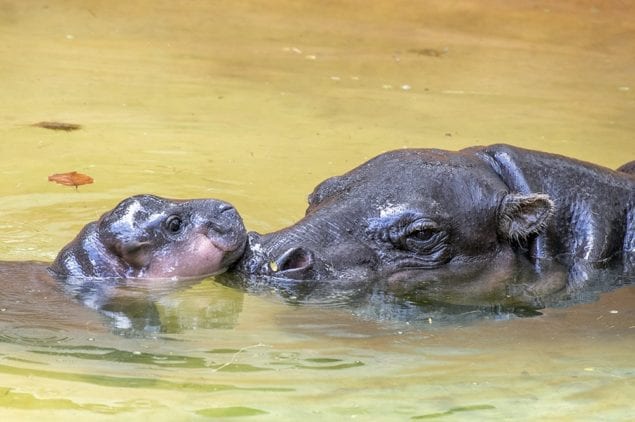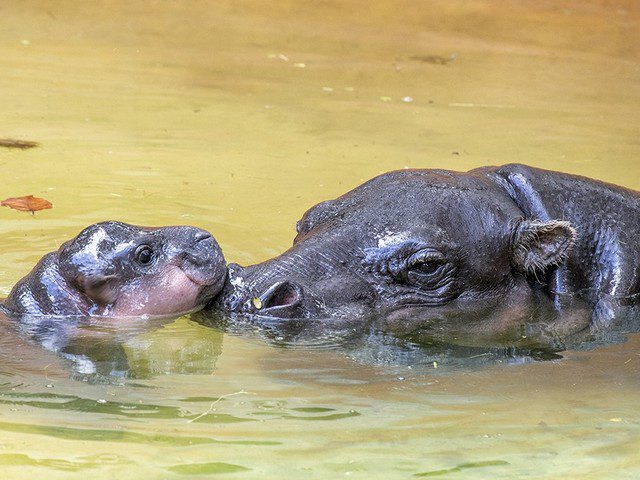
After several weeks of private time bonding with his mother, a yet unnamed endangered male pygmy hippo that was born on Aug. 4 at Zoo Miami, recently made its public debut.
Zoo staff was very careful to ensure that the infant’s introduction to the exhibit was done slowly and with an abundance of caution. The exhibit pool is being kept at a reduced level until staff is confident that the baby is a good swimmer and can navigate the exhibit well. Initial indications are that this baby will have no trouble adjusting as once he was given access to the pool with his mother, they both jumped right in. In very little time, he was swimming quite well and soon started to jump and dive freely, seeming to thoroughly enjoy his new surroundings.
The plan is to give mother and son access everyday beginning at approximately 10 a.m. and then bringing them back into their sleeping area at approximately 3 p.m. As the infant becomes more independent and comfortable in the exhibit, he and his mother will gradually be given access for longer periods of time.
This is only the second pygmy hippo birth in Zoo Miami’s history, with the last one being born in 2010 and both belonging to 26= year-old Kelsey. Kelsey was born at the Baton Rouge Zoo in Louisiana and arrived at Zoo Miami in May of 1993.
Ralph is the 5-year-old first-time father. He was born at the Henry Doorly Zoo in Omaha, NE and arrived at Zoo Miami in March of 2017. Ralph will remain separated from mother and son as in the wild, pygmy hippos are solitary and the father has no role in raising the young and could be a potential threat to the baby should he have access.
Pygmy hippos are a much smaller version of their well-known cousins, the common river hippo, and usually weigh between 400 and 600 pounds whereas river hippos can reach 6,000 pounds. In addition, they are less aquatic than river hippos and are usually seen alone or in pairs rather than in large groups.
Pygmy hippos also are much rarer and are classified as endangered with only about 3,000 individuals believed to be left in the wild where they feed on a variety of plants and fruits. They are restricted to small isolated populations within the interior forests and rivers of Liberia, Sierra Leone, Guinea, and the Ivory Coast where they are threatened by deforestation and hunting for meat. Because of their rarity and shy behavior, very little is known about their habits in the wild.






